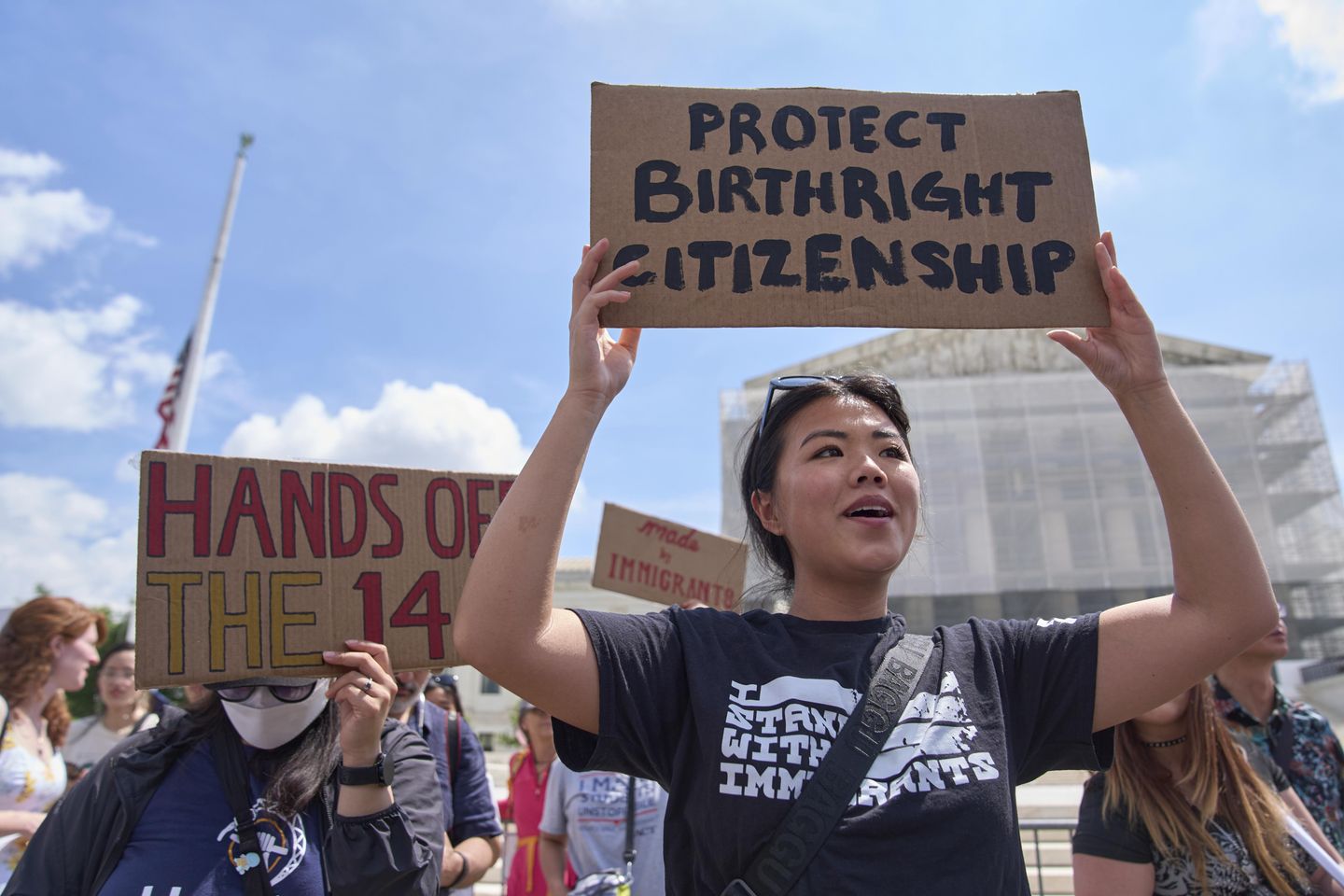
Don’t miss the full story from our staff writers, whose reportage is the basis of this article.
The Supreme Court recently heard arguments concerning the legality of nationwide injunctions issued by district judges to block government actions. The case centers on President Trump’s executive order attempting to limit birthright citizenship for children born to illegal immigrants and temporary visitors.
While several justices acknowledged problems with district judges issuing nationwide injunctions that can halt presidential actions across the country, they struggled to find a clear solution. Solicitor General D. John Sauer argued that district judges should only provide relief to the specific plaintiffs before them, citing Article III of the Constitution.
Justice Elena Kagan recognized the potential abuses of nationwide injunctions but worried about removing this judicial power entirely, especially when fundamental rights like birthright citizenship are involved. Justice Ketanji Brown Jackson expressed concern that without nationwide injunctions, every affected individual would need to file separate lawsuits to protect their rights.
Mr. Trump’s executive order directed federal agencies not to recognize citizenship for children born to parents in the country illegally or on temporary visas. Legal scholars generally believe this violates the 14th Amendment, which guarantees automatic citizenship to “all persons born or naturalized in the United States.”
Conservative justices like Samuel Alito and Clarence Thomas questioned the necessity of broad rulings, with Mr. Thomas noting that courts operated without universal injunctions for nearly two centuries. Mr. Sauer highlighted the recent increase in such injunctions: 64 during Mr. Trump’s first term, 22 against former President Joe Biden’s policies, and 40 in less than four months of President Trump’s second term.
Several justices, including Sonia Sotomayor, suggested Mr. Trump’s birthright citizenship order was clearly unconstitutional, making it a poor test case for limiting nationwide injunctions. She compared it to a hypothetical presidential order to confiscate all guns, questioning if every gun owner would need to sue individually.
New Jersey Solicitor General Jeremy Feigenbaum argued that having different citizenship rules across states would create “unprecedented chaos.” Even Mr. Sauer struggled to explain how the process would work practically, concerning Justice Brett Kavanaugh who questioned how hospitals and states would handle newborns if the order took effect.
The Supreme Court combined three related cases for Thursday’s oral arguments as they consider this significant constitutional question.
Read more: Trump’s birthright citizenship order strains Supreme Court
This article is written with the assistance of generative artificial intelligence based solely on Washington Times original reporting and wire services. For more information, please read our AI policy or contact Ann Wog, Managing Editor for Digital, at awog@washingtontimes.com
The Washington Times AI Ethics Newsroom Committee can be reached at aispotlight@washingtontimes.com.


![Trump Posts Hilarious Pope Meme, Leftists Immediately Melt Down [WATCH]](https://www.right2024.com/wp-content/uploads/2025/05/Trump-Posts-Hilarious-Pope-Meme-Leftists-Immediately-Melt-Down-WATCH-350x250.jpg)



![Bessent Exposes Media Lies About April’s Stock Market Performance [WATCH]](https://www.right2024.com/wp-content/uploads/2025/04/Bessent-Exposes-Media-Lies-About-Aprils-Stock-Market-Performance-WATCH-350x250.jpg)


![Taylor Swift Slams Subpoena in Blake Lively’s Explosive Legal Battle [WATCH]](https://www.right2024.com/wp-content/uploads/2025/05/1746936931_Taylor-Swift-Slams-Subpoena-in-Blake-Livelys-Explosive-Legal-Battle-350x250.jpg)
![Markets Soar as NASDAQ and S&P 500 Hit New Record Highs [WATCH]](https://www.right2024.com/wp-content/uploads/2025/06/Markets-Soar-as-NASDAQ-and-SP-500-Hit-New-Record-350x250.jpg)
![Wild Road Rage Brawl Erupts in Milwaukee [WATCH]](https://www.right2024.com/wp-content/uploads/2025/05/Road-Rage-Turns-Violent-in-Oregon-Minivan-Mows-Down-Motorcyclist-350x250.jpg)





